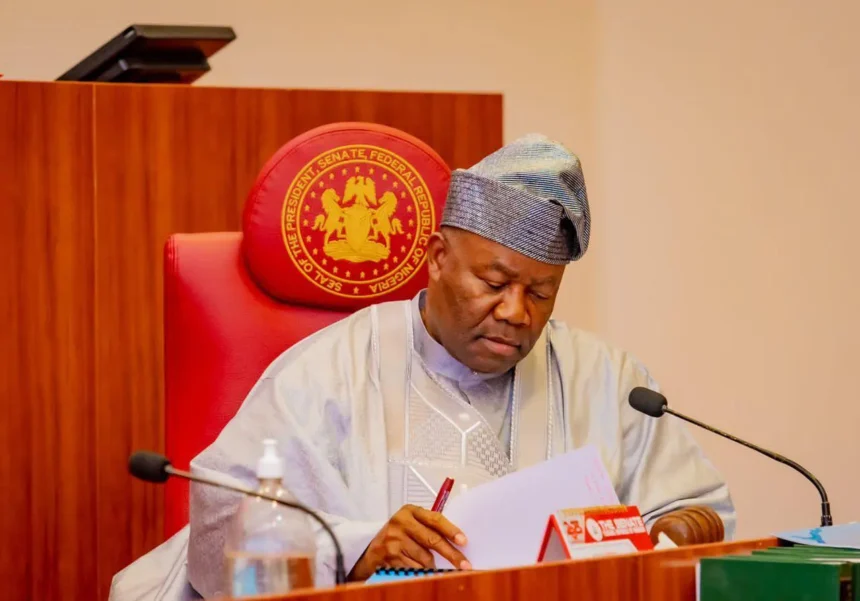
Senate President Godswill Akpabio, on Monday, unveiled the National Counter-Terrorism Centre’s NCTC, Strategic Plan 2025–2030, describing it as a defining moment in Nigeria’s quest to strengthen national security.
Akpabio stated that the strategic plan was timely, aligning with the government’s resolve to defeat terrorism and build a resilient, peaceful nation.
The unveiling event in Abuja drew top government officials, security chiefs, diplomats, private sector leaders, and development partners.
The Senate President said the five-year plan reflected Nigeria’s resolve to modernize its security architecture and protect citizens from evolving threats.
Akpabio noted that insecurity has slowed national development, disrupted education, forced investors out, and weakened communities.
“This strategy provides a disciplined framework to transform institutions, integrate advanced technology, improve intelligence coordination and foster stronger collaboration across government and society,” he added, calling for sustained investments in technology, training and personnel.
He outlined three critical pillars which include strengthening national resilience through early warning systems and community intelligence, integrating modern technology such as drones and cybersecurity platforms, and enhancing regional and international cooperation to confront transnational threats.
Akpabio also stressed the importance of private-sector partnerships in financing security efforts and supporting victims of terrorism.
He assured that the National Assembly would enforce transparency and accountability in such collaborations and closely monitor implementation.
He explained that “the Strategic Plan is a national promise that Nigeria will not yield to fear or insecurity.
“Citizens, traditional rulers, civil society, youth groups, the private sector and international allies must unite to safeguard the nation.”
National Security Adviser, NSA, Malam Nuhu Ribadu, represented by the National Coordinator of the NCTC, Maj.-Gen. Adamu Laka, said the plan provides a coordinated, research-driven roadmap based on lessons from over two decades of fighting insurgency.
He highlighted the social drivers of violent extremism, including unemployment, drug abuse and lack of opportunities.
He said that initiatives like the “Seeds of Hope” programme to rehabilitate victims of terrorism through agriculture and livelihoods aim to strengthen intelligence, operations, legal frameworks, judicial processes, strategic communication and national resilience, positioning Nigeria as a regional leader in counter-terrorism.











